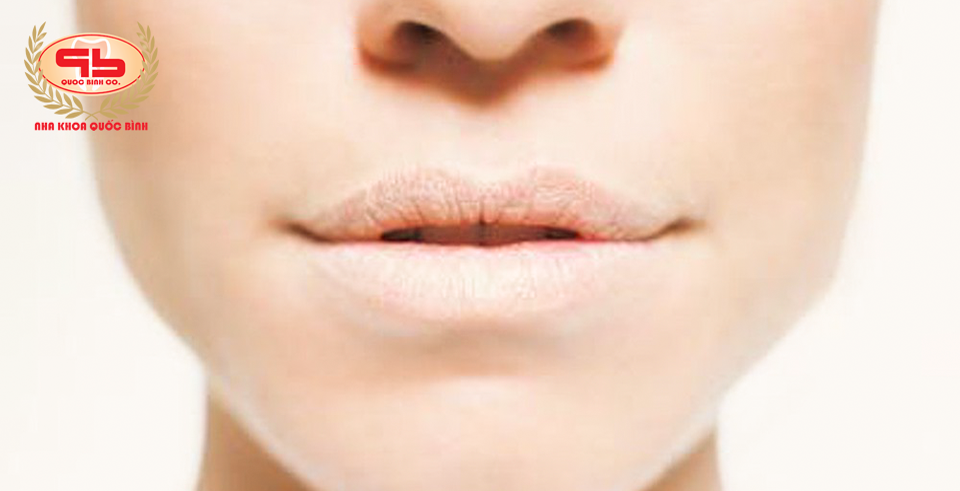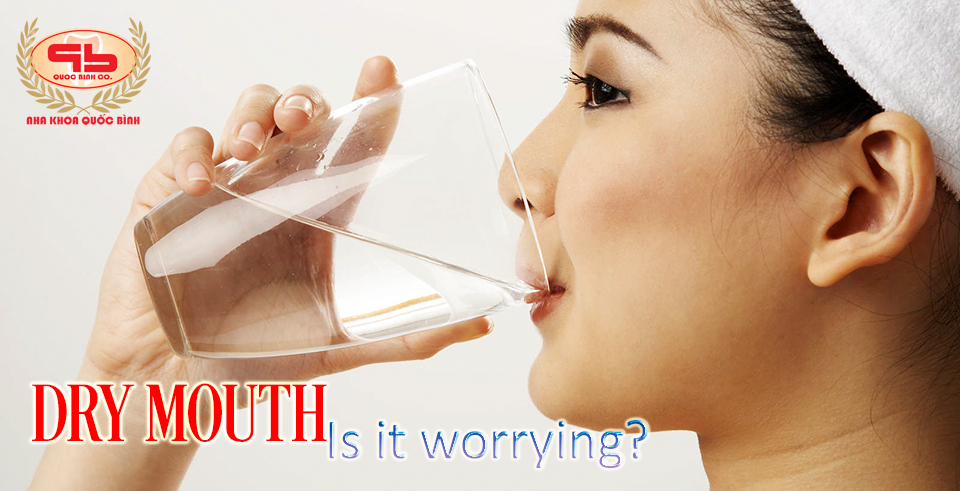When entering middle age, many health problems appear markedly. There are signs that appear to be not very serious; But the reality affects a lot to everyday life. If you’ve ever had dry mouth, you’ll understand how annoying this is.
Dry mouth is actually not a private affair of the elderly, but can occur at any age. Dry mouth is not a separate disease, it is a symptom of some diseases.
When the amount of saliva in your mouth is less, it will cause dry mouth

How is the role of saliva?
You can easily see the saliva right in your mouth. It is a viscous, colorless solution that sometimes shows bubbles in a slightly cloudy state.
Saliva is secreted from three main glands located in the mouth: the sublingual glands, the glands near the jawbone, the parotid glands on the cheeks.
Different types of saliva are secreted at each gland, but overall the main ingredient is still 98% water. The rest consists of slime, minerals, enzymes, antibacterial agents …
When you eat or chew or move your mouth; Even sniffing the scent from food, or just thinking of the image of food is your body releases a large amount of saliva.
Within 24 hours a day, the body can produce 0.5 liter of saliva. And only at night when you sleep, saliva will be significantly reduced.
What is the important task of saliva in daily life?
Food binder while chewing. When teeth crush food, saliva will help to bind the debris together into soft greasy masses. And easily moves down the stomach.
The amylase enzymes present in saliva help convert starch into sugar; The lipase partially metabolizes fat.
Saliva is a natural oral protector. There are countless bacteria in our mouth. During living, bacteria secrete acids that damage tooth enamel. Saliva neutralizes these acids; At the same time, the natural antibacterial substances in saliva will kill part of the bacteria.
Note: When you sleep, the amount of saliva secreted is less, so this function is significantly reduced. When you wake up, you often find that your mouth is often dry and has a foul odor.
In addition, saliva helps to reduce tooth decay, due to the restoration of calcium minerals and phosphorus for tooth enamel.
For patients who use dentures, saliva helps lubricate and help dentures breathe more deeply into the jaw bone
In advanced medicine, doctors can rely on saliva to test and diagnose a number of conditions such as viral hepatitis, HIV, breast cancer, oral cancer; Discover abuse banned drug, monitor progress treatment of depression, anxiety …
How does saliva affect dry mouth?
- There are many causes of dry mouth. But the most obvious reason is that the salivary gland is damaged, or is inhibited.
- Specifically when you are in the following cases:
- Chemotherapy and radiation to the head and neck area will damage the salivary glands. Reduce the amount of saliva secreted and cause dry mouth.
- Diabetes, weakened immune system (HIV / AIDS) …
- Injury to the nervous system that controls salivary glands.
- Hormonal changes in the body during pregnancy or menopause.
- Side effects of the drug cause a decrease in salivation, and dry mouth.
- Breathing through your mouth also causes dry mouth. Common when snoring, stuffy nose …
- Stress also causes dry mouth.
So, can dry mouth cause serious consequences?
- The first thing you will feel is the difficulty of swallowing food.
- Eating and drinking are not delicious.
- Sore throat, hoarseness, and the serious thing is bad breath.
- The lips and teeth stick together, making it’s difficult to talk.
- The risk of tooth decay, gingivitis is higher.
How Is Dry Mouth Treated?
By just identifying the cause of your dry mouth, your doctor will help you improve it.
However, there are a few tips to help prevent dry mouth:
- Avoid using stimulants such as cigarettes, beer, and alcohol
- Drink enough water throughout the day (minimum from 2.5 to 3 liters)
- Avoid eating foods that are too salty, or too spicy to reduce irritation of the oral mucosa.
- During the eating process, if dry mouth makes it difficult to swallow, you can use a combination of a little soup, or water to make it easier to swallow.
- Chewing sugar-free gum stimulates salivary glands to function.
- Eat lots of succulent fruits; Or you can use products that help create greasy mouth.
- For places with air conditioner is used frequently, it is necessary to provide moisture to the air.
Important note: good dental care will help improve this situation significantly.
- Brush at least 2 times / day. Floss off the remaining plaque with dental floss.
- Use fluoride toothpaste.
- And create a habit of examining the teeth every 6 months at the dental centers.
If you need further assistance, you can contact:
QUOC BINH DENTAL CLINIC IN VUNG TAU
19 Pham Hong Thai Str., Ward 7, Vung Tau City.
28 Le Loi Str., Ward 4, Vung Tau City.
Hotline: 0914 83 99 66
Online information page: https://www.facebook.com/nhakhoaquocbinh/

